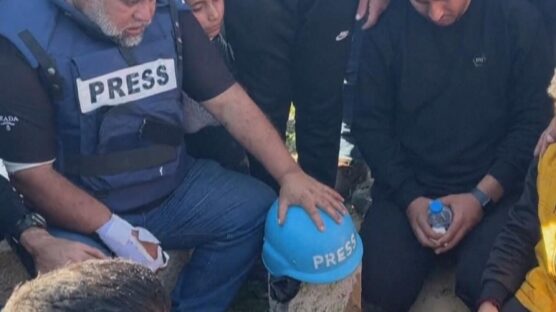Migrants: Caught in the fire between Libya and Italy
By France 24
09 December 2017 |
6:00 am
In the past few months, the number of migrants attempting to cross the Mediterranean has shrunk drastically on the back of new migrant policies in Libya and Italy alike. Instead, many of them find themselves stuck in a living nightmare in Libya, where they are imprisoned, tortured and sold off as slaves.
Related
Related
1 day ago
The number of births and weddings in Germany has fallen to its lowest level in a decade, especially in the eastern part of the country.
11 hours ago
Investigators teamed up with colleagues from the Balkans and Lebanon in raids set up by months of intense surveillance. Authorities say the operation thwarted over €10 million in damages and led to 21 arrests.
11 hours ago
Georgians continue to take to the streets to demonstrate against draft legislation that they say would infringe on their rights and lessen the chances of Georgia being able to join the EU.
8 hours ago
Britain's opposition Labour Party won a parliamentary seat in northern England on Friday and control of several councils, inflicting heavy losses on the governing Conservatives to pile more pressure on Prime Minister Rishi Sunak.
5 hours ago
According to a UNESCO report, a whopping 70 percent of environmental reporters regularly face threats, attacks and intimidation. Meanwhile, UNESCO awards its World Press Freedom Prize to all Palestinian journalists covering the war in Gaza, who are paying a heavy price for their reporting.
Latest
5 hours ago
The bus was traveling from a city near the capital, Islamabad, to the mountainous region of Gilgit-Baltistan, near the Chinese border. Road accidents are common in Pakistan due to poor roads and driver training.
9 hours ago
Viral videos on social media claim to show US President Joe Biden either "shaking hands with a ghost" or with "thin air".
9 hours ago
In this edition of arts24, we hear from British pop star Dua Lipa on her much-anticipated new record "Radical Optimism"
11 hours ago
The devaluation of the naira against the dollar has plunged Nigerians into a deep socio-economic depression. The price of basic foodstuffs can double or even triple in the same day.
1 day ago
Find these stories and much more when you grab a copy of The Guardian on Friday.
1 day ago
China's minister of commerce is in Europe for a week-long trip, with a focus on pushing back against accusations of unfair state subsidies in the Chinese electric vehicle sector.
×

Get the latest news delivered straight to your inbox every day of the week. Stay informed with the Guardian’s leading coverage of Nigerian and world news, business, technology and sports.


















0 Comments
We will review and take appropriate action.